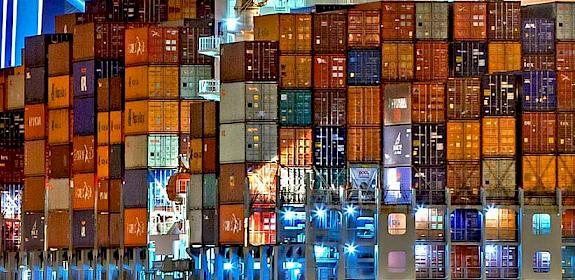China and Africa look to “win-win co-operation” on legal and sustainable trade
Beijing, China, 31st August 2018—Next week the 7th Ministerial Conference of the Forum on China-Africa Cooperation (FOCAC) takes place in Beijing with the goal of creating a shared future through “win-win co-operation”, including for sustainable development.

FOCAC is the premier platform through which trade and investment is mediated between China and African countries. Ministers and Heads of States from African member countries of FOCAC and China will meet to discuss a range of issues relating to agriculture, industry, infrastructure, science, wildlife and technology.
During the previous FOCAC Ministerial meeting and Heads of State summit in 2015, the Johannesburg Action Plan (2016–2018) was adopted. This included commitments by China and 50 African Member States to work closely to combat illegal trade of fauna and flora products and to collaborate on sustainable forest and fisheries management. Expectations are now high for an updated Action Plan to come out of Beijing next week, which is anticipated to build positively on the commitments from Johannesburg.
Public commitment from both sides in 2015 made encouraging steps to address wildlife crime and the profound impacts it has on many sections of society.
Dr Taye Teferi, TRAFFIC’s Policy and Partnership Co-ordinator for Africa.
‘’But the bottom line remains: further effort is clearly needed to catalyse measurable change on the ground in Africa. TRAFFIC hopes next week’s meeting will result in fresh impetus and identify available technical and financial resources to address effectively these persistent threats to Africa’s people and its wild biodiversity and secure the long-term benefits of its natural resources.”
Earlier this year, TRAFFIC and WWF convened an African Regional Awareness and Capacity Building Workshop Towards FOCAC 2018 in which participants urged that any new Action Plan should have a clear commitment to environmental and social sustainability. They also called for a clear financing and implementation-tracking mechanism with measurable indicators of success.
‘’Clearly there are major opportunities to support sustainable development in African countries through Chinese investment and mutual co-operation between FOCAC partners to ensure compliance with legal and sustainable trade regulations,’’ said Xu Ling, Acting Director of TRAFFIC’s China office.
‘’At the same time, China’s increasing effort to work with African counterparts, as well as Chinese companies and individuals based in Africa, will be essential to combat wildlife crime and exclude illegal fauna and flora from supply chains coming out of Africa.’’
Another critical aspect in next week’s negotiations will be to ensure FOCAC projects are integrated into and consistent with Agenda 2063, African leaders’ vision for the next 50 years that aims to optimise the use of the continent’s resources for the benefit of its people as well as the Sustainable Development Goals (SDGs) that the global community has firmly committed to.
Notes:
In advance of the FOCAC Meetings, a side-event on China-Africa Cooperation on Sustainable Development will take place in Beijing on 2nd of September, hosted by WWF and Peking University’s Centre for African Studies. Provisional agenda.
Recommendations to FOCAC from an African perspective.
 TRAFFIC is grateful to WWF France and to Germany’s Partnership against Poaching and Illegal Wildlife Trade (Ivory and Rhino-Horn) in Africa and Asia, implemented by GIZ on behalf of the German Federal Ministry for Economic Cooperation and Development (BMZ) and the German Federal Ministry for the Environment, Nature Conservation and Nuclear Safety (BMU), which provided support to the side-event through TRAFFIC’s project DETER.
TRAFFIC is grateful to WWF France and to Germany’s Partnership against Poaching and Illegal Wildlife Trade (Ivory and Rhino-Horn) in Africa and Asia, implemented by GIZ on behalf of the German Federal Ministry for Economic Cooperation and Development (BMZ) and the German Federal Ministry for the Environment, Nature Conservation and Nuclear Safety (BMU), which provided support to the side-event through TRAFFIC’s project DETER.
WWF

WWF is an independent conservation organization, with over 30 million supporters and a global network active in over 100 countries. WWF's mission is to stop the degradation of the Earth's natural environment and to build a future in which humans live in harmony with nature, by conserving the world's biological diversity, ensuring that the use of renewable natural resources is sustainable, and promoting the reduction of pollution and wasteful consumption. Visit www.panda.org/news for the latest news and media resources and follow us on Twitter @WWF_media.





